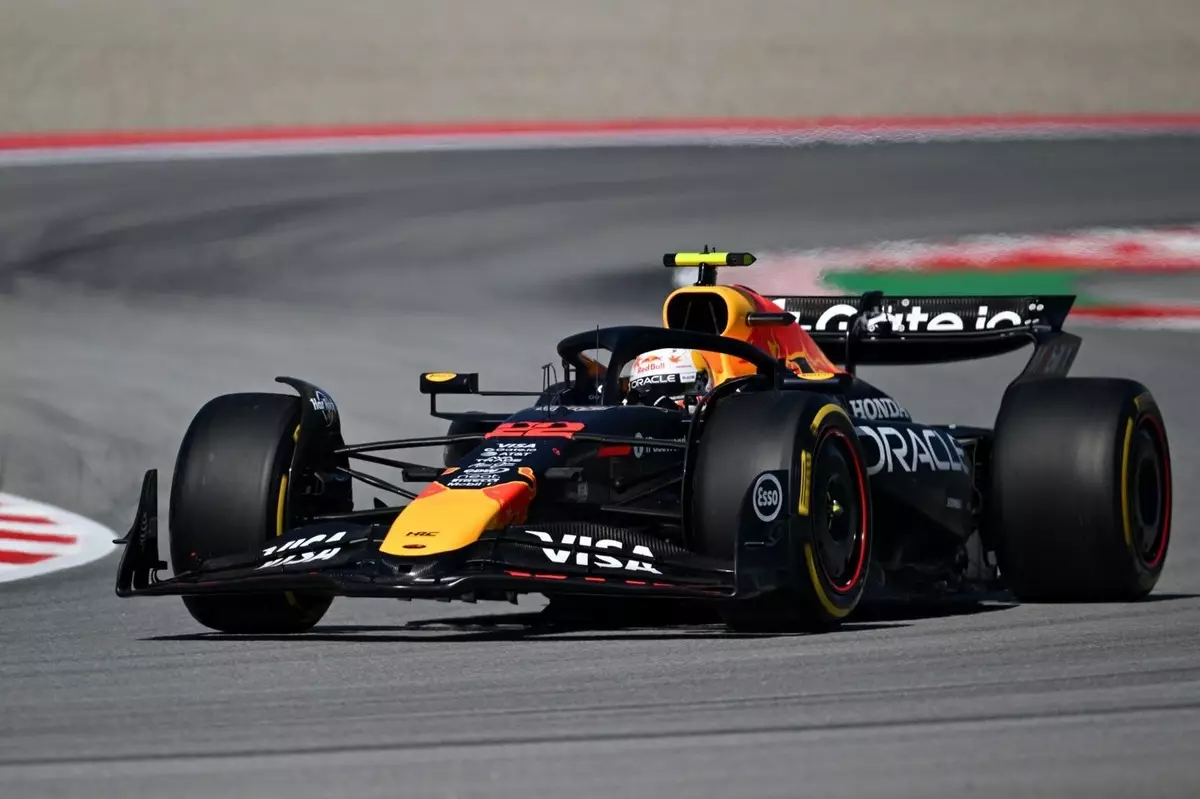Amid the roaring engines and gripping spectacle that is Formula 1, there exists an underlying tension—especially when athletes grapple with unexpected sluggishness. Yuki Tsunoda, the emerging talent from the Red Bull team, found himself engulfed in this conundrum during the recent opening practice sessions at the Spanish Grand Prix. With evident frustration, Tsunoda expressed that his lack of pace left him bewildered, casting shadows of uncertainty over his capabilities and potential. While the smoothness of his driving may have been there, the speed was wholly absent, leaving him questioning his grasp on the intricacies of the track.
A Smooth Yet Slow Performance
Tsunoda’s feedback reveals a complex relationship with performance. Despite the sessions going relatively well, his lap times were disheartening. The young driver reported slipping at both the front and rear axles, which impeded his overall speed. A stark contrast emerged when comparing his times with those of teammate and reigning champion Max Verstappen, who outpaced Tsunoda by a substantial six tenths of a second during their qualifying simulations. This wide gap illustrates not only the challenges Tsunoda faced but also the fine margins that separate extraordinary talent from mediocrity in the high-stakes world of F1.
The dissonance between Tsunoda’s feelings of progress—having a “pretty good” lap in FP2—and the objective data indicating a performance shortfall poses an intriguing dilemma. It poses questions about confidence, technique, and the often-misleading nature of subjective experiences in sports. Metrics like GPS data illuminated Tsunoda’s troubles, particularly his struggle to maintain speed through critical corners like Turn 9 and Turn 10, where efficiency is paramount.
The Pressure of Performance
The sense of urgency to unravel the mystery of his lack of speed weighed heavily on Tsunoda. While he recognized the importance of assessing and adjusting, he lamented the elusiveness of identifying specific limitations in his race car’s balance. Here lies a crux in motorsport—the fine line between mental clarity and psychological burden. Tsunoda’s admission that he was “struggling” evokes the universal athlete’s plight of overcoming self-doubt, particularly when results fail to align with expectations.
Tsunoda articulated a commendable determination to investigate and rectify the situation, even with the impending constraints of time and team curfews. His commitment to improvement speaks volumes about his character, but it also highlights a common pitfall: endless analysis can spiral into an overwhelming mental fog, further impeding performance instead of enhancing it.
Contrasting Perspectives: Verstappen’s Experience
In sharp contrast to Tsunoda, Max Verstappen’s Friday experience elicited a measure of contentment. The seasoned champion reported feeling more buoyant about his car’s performance while remaining acutely aware that further improvements were necessary. His “OK” feedback reveals a mature understanding of the sport’s evolving nature, where every session is a step toward fine-tuning an inherently complex machine.
Verstappen’s sentiments serve as a reminder that perspectives in racing can differ dramatically from driver to driver. While some grapple with deep frustrations, others find joy amidst the technical challenges. However, the underlying lesson remains clear: the journey to mastery in motorsport is seldom linear, requiring resilience and adaptability.
Looking Ahead: The Challenge of Improvement
As the Red Bull team shifts focus to the crucial upcoming sessions, the question looms—what measures can Tsunoda and his engineers undertake to close the performance gap? Tsunoda’s candid reflections underscore the need for an honest and comprehensive analysis of both driver and machine, each element heavily intertwined within the larger framework of competitive racing.
The pursuit of speed is about more than just raw numbers; it encapsulates the intricacies of strategy, psychology, and the dynamic between driver confidence and car responsiveness. Tsunoda’s perseverance amidst uncertainty sets the stage for an exciting narrative of growth and potential redemption. Watching how he grapples with these challenges not only piques curiosity but also serves as a compelling reminder of the relentless drive that defines the spirit of Formula 1.

